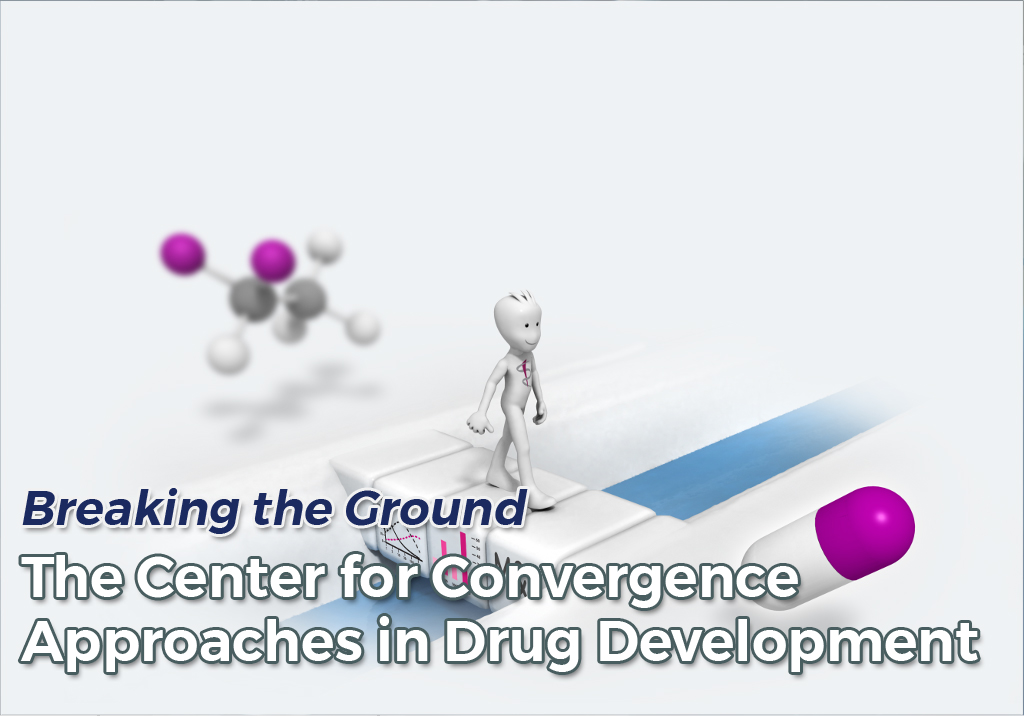


NEWS
A CCADD graduate, Dr. Tae Kyu Chung, was honored with the Trainee Challenge Award by PhRMA with his new study published on CTS
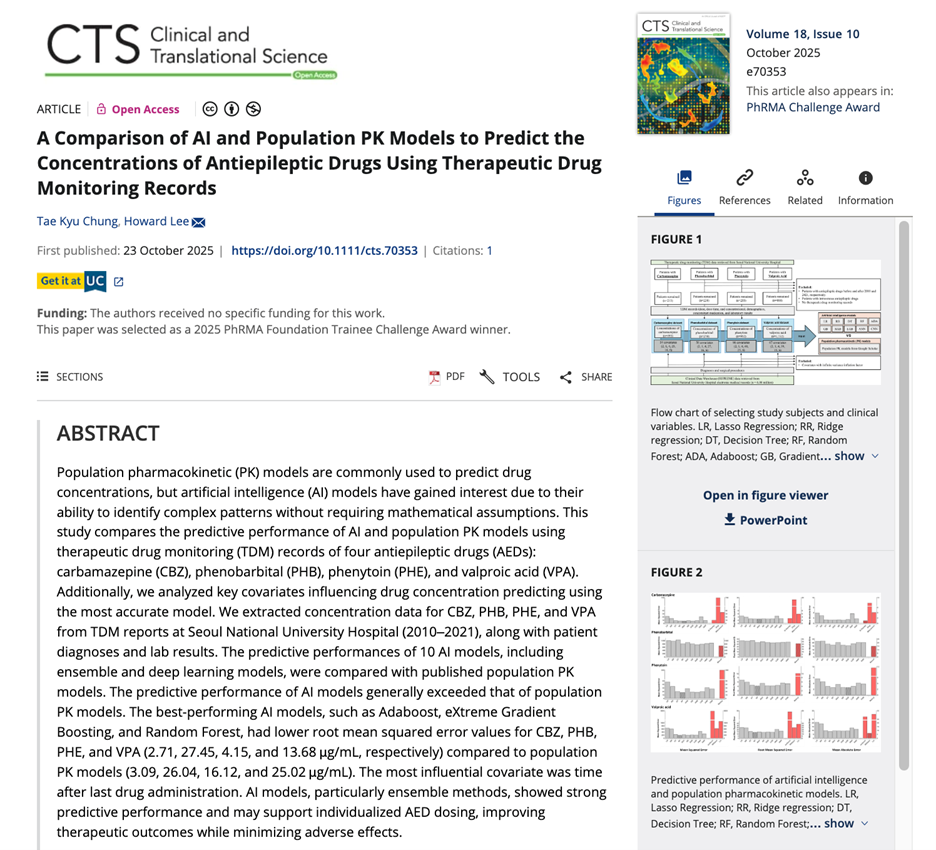
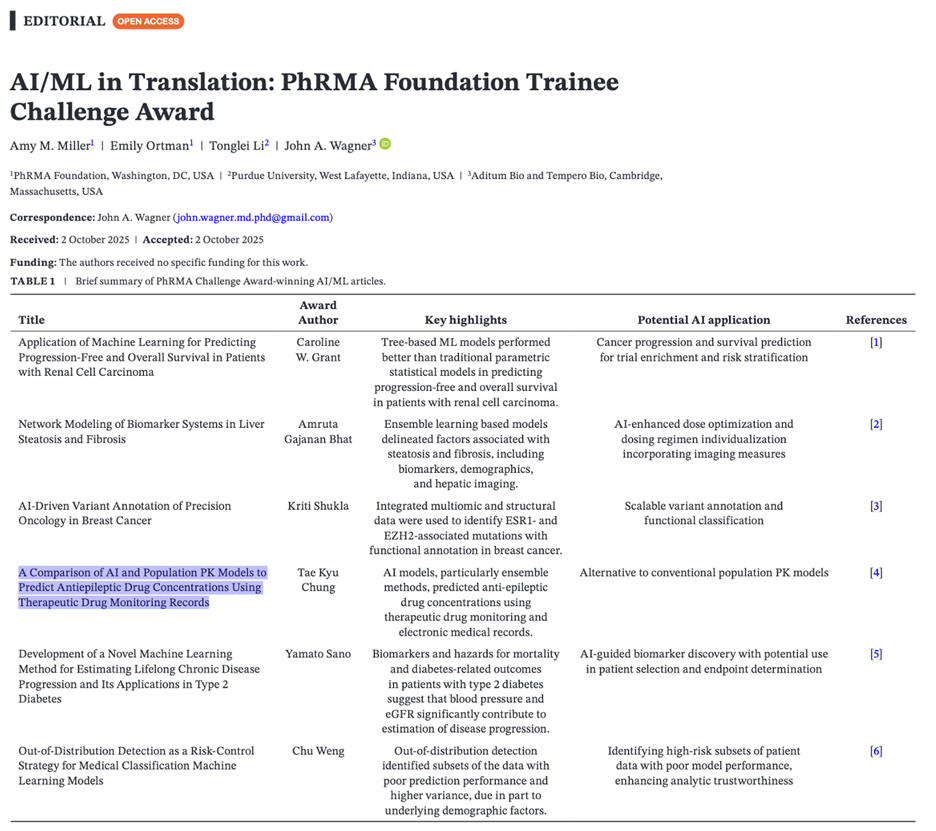
A research article entitled, “A Comparison of AI and Population PK Models to Predict Antiepileptic Drug Concentrations Using Therapeutic Drug Monitoring Records” , authored by Tae Kyu Chung and Howard Lee, was published in Clinical and Translational Science (CTS). CTS is one of the most prestigious journals in clinical pharmacology and pharmacometrics (, further emphasizing the study’s valuable contribution to the filed. This study investigated whether Artificial Intelligence (AI) models could predict the plasma concentration of antiepileptic drugs more accurately than traditional population pharmacokinetic (PK) models by leveraging real-world therapeutic drug monitoring (TDM) and electronic medical record (EMR) data. By comparing predictive performance and identifying key determinants of the drug concentration estimates, the study showcased the potential of AI-based models to complement model-informed precision dosing (MIPD) approaches. More importantly, the study was featured in the Clinical and Translational Science editorial article “AI/ML in Translation: PhRMA Foundation Trainee Challenge Award”. As part of this special issue on AI and Machine Learning, Chung’s study—which had been conducted during his PhD at CCADD—was recognized with the PhRMA Trainee Challenge Award, presented by the Pharmaceutical Research and Manufacturers of America (PhRMA). The award included a $5,000 prize and publication fee support from the PhRMA Foundation, a nonprofit organization that has supported early-career researchers for over six decades. Together, these two achievements underscore CCADD’s commitment to advancing data science–driven and model-informed pharmacological research, reinforcing the center’s leadership in developing innovative and personalized treatment strategies that bridge computation and clinical practice.
By CCADD|October 27, 2025
Keywords

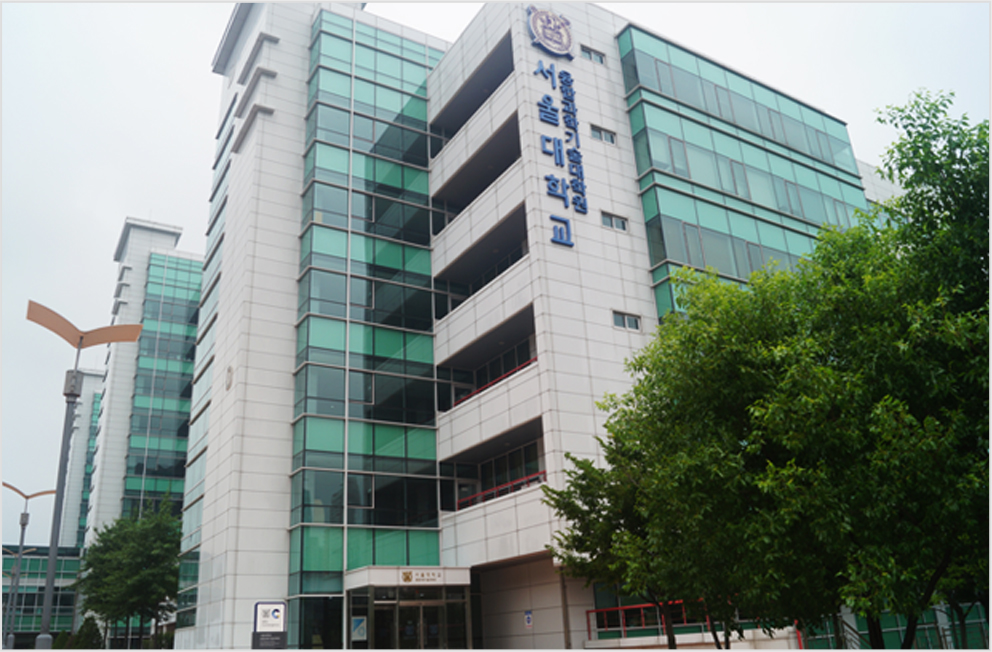
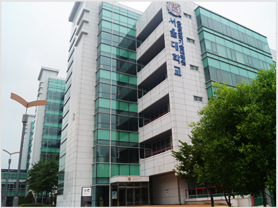
CCADD
Center for Convergence Approaches in Drug Development, Graduate School of Convergence Science and Technology, Seoul National University
Room C-208, 145 Gwanggyo-ro, Yeongtong-gu, Suwon-si, Gyeonggi-do, 16229, SOUTH KOREA (Gwanggyo)
Room 406, Building 17, Seoul National University College of Medicine, 103 Daehak-ro, Jongno-gu, Seoul, SOUTH KOREA (Yeon-gun)
Tel: +82-31-888-9189 (Gwanggyo); +82-2-3668-7381 (Yeon-gun)
Fax: +82-31-888-9575
Email: ccadd.snu@gmail.com
















